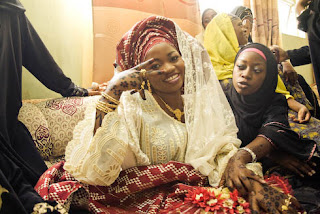Most couples tend to overlook this aspect (maybe due to budget) but your desserts do not have to expensive. if you decide on serving dessert to your lovely guests why not go for more Traditional Options.
Here are a few Nigerian Ideas:
1. Kankaran Tsamiya (Frozen Tamarind Juice)
Kankaran Tsamiya is frozen extract from the tsamiya (tamarind) fruit. This is a Northern Nigerian licky-licky enjoyment!
Tamarind has a sweet and sour taste. It is in the same family as Velvet Tamarind which is more popular.
2. Nigerian Shuku Shuku (Coconut Balls)
Nigerian Shuku Shuku is a great Nigerian delicacy that doubles as a dessert and a snack.
If you have ever tasted coconut and bread (chewed together), that's what Shuku Shuku tastes like. It is the perfect way to recycle the chaff. You can also use coconut flakes for this but the Shuku Shuku made with those are lighter.
3. Nigerian Coconut Candy
There are many snacks/desserts referred to as coconut candy but the sweet chewy Coconut Candy discussed below is the one made in Nigeria. Though there is a lot of work that goes into grating the fresh coconut meat into tiny pieces, the snack itself is very simple to make, With icing sugar added, its delicious.
There are many snacks/desserts referred to as coconut candy but the sweet chewy Coconut Candy discussed below is the one made in Nigeria. Though there is a lot of work that goes into grating the fresh coconut meat into tiny pieces, the snack itself is very simple to make, With icing sugar added, its delicious.
4. Nigerian Puff Puff
Nigerian Puff Puff is that spongy, deep-fried, spherical snack that originated from Nigeria. It is soft and springs back to touch, you know, like when you pinch a foam sponge. Why not serve it with melted chocolate or icing sugar...something like a pavita roll 😄
5. Nigerian Pancake
Everyone loves pancakes and most Nigerians think of pancake as just a snack. But have you ever thought of another way to enjoy pancake? Serving Nigerian pancakes at your Traditional Wedding would be ideal. It is made with those ingredients that we always have in our kitchen. it is a blend of eggs, flour and butter.
Dare to be different..... Introduce something Traditional to your menu! 😄
Follow, Like, Comment and Share
Thank you



































